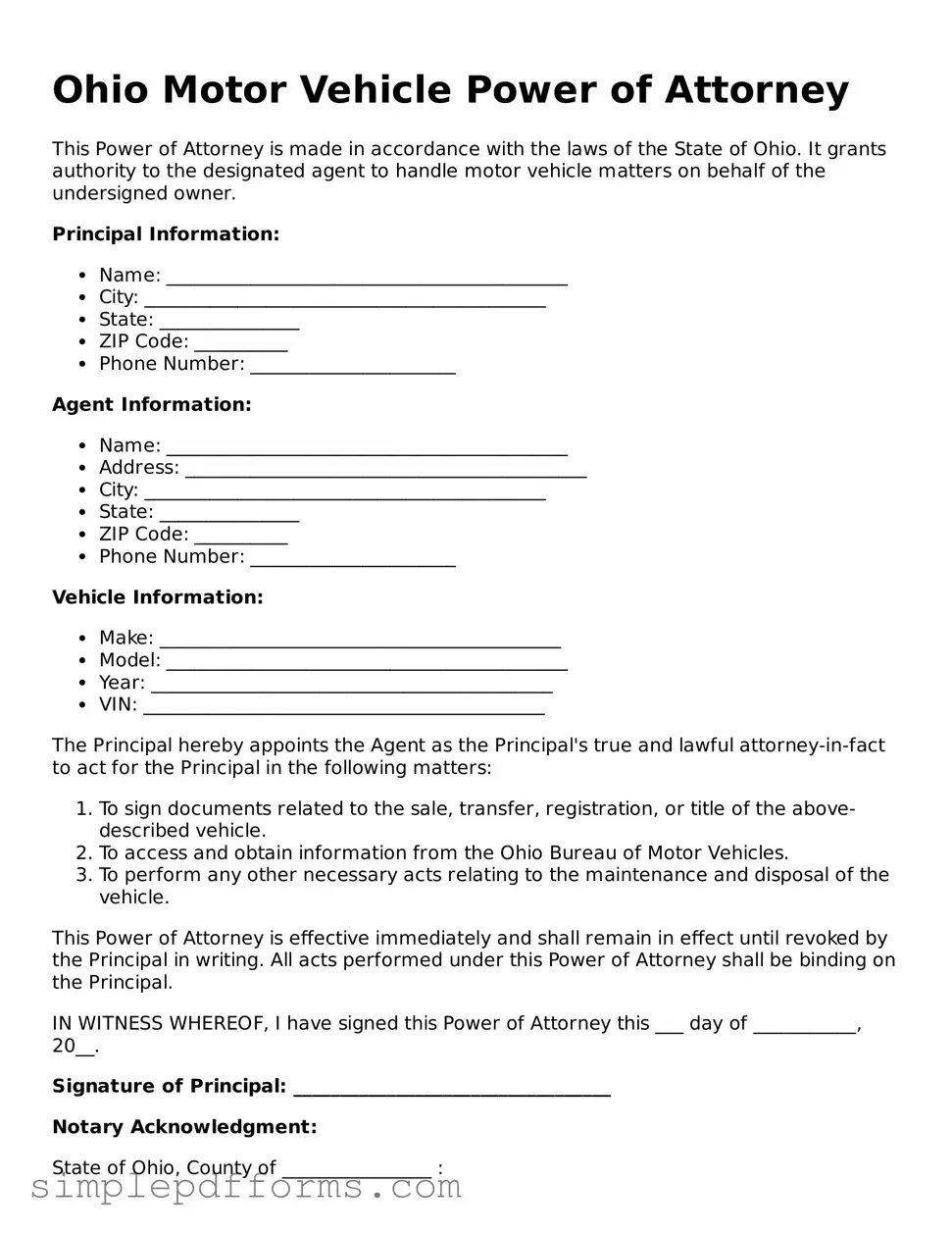Attorney-Verified Motor Vehicle Power of Attorney Document for Ohio State
The Ohio Motor Vehicle Power of Attorney form is a legal document that allows an individual to designate another person to act on their behalf in matters related to motor vehicles. This form is essential for those who may need assistance with vehicle transactions, such as buying, selling, or registering a vehicle. By granting this power, you ensure that your interests are represented effectively and efficiently.
Open Motor Vehicle Power of Attorney Editor Now

Attorney-Verified Motor Vehicle Power of Attorney Document for Ohio State
Open Motor Vehicle Power of Attorney Editor Now

Open Motor Vehicle Power of Attorney Editor Now
or
Get Motor Vehicle Power of Attorney PDF Form
Your form is waiting for completion
Complete Motor Vehicle Power of Attorney online in minutes with ease.